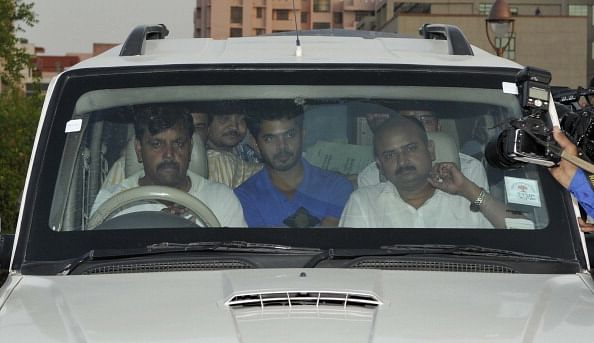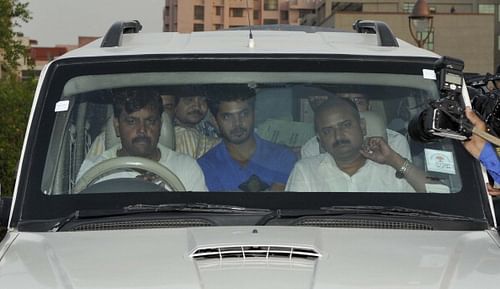
IPL 6 scandal: In a spot, in a fix

Both sports and films serve the common purpose of entertaining people. Yet the route taken by them is entirely different. In sports, unlike films, there is no written script and nor does a particular game (in any sport) begin, develop and culminate as per the vision of a director. There is a set of rules for every sport and there are two teams (consisting of one or more players) that are trying to win the game. Which team will win the game or by what margin only depends on which team executes its strategy better on the given day. In short, there is an element of uncertainty associated with sports and every skill exhibited and every emotion displayed on the field by the players is for real. Apart from the technical skills inherent with each sport, it is this unpredictability that sports fans lap up. They love to witness how, on a given day, their team responds to the challenges thrown towards them by their opponents and how they end up winning. They even draw parallels between the sports they love and the challenges they face in their own lives.
So when one realises that in a game the element of uncertainty has been compromised, either partly or in totality, one feels cheated. In cricket, we had felt cheated during the year 2000 when two senior cricketers of our national team were found guilty of match fixing. The presence of such tainted individuals in the only sport in which India had a global footprint infuriated every citizen. However, at that time the anger was directed towards a few specific individuals and as, in the subsequent years, Indian cricket went through one of its brightest phases, the fixing saga was soon a thing of the past.
Unfortunately in 2013, betting and fixing have reared their ugly heads again, this time in the IPL. And what is more worrying is that it appears that the disease has grown deep roots within the Indian cricket structure. From my perspective, there are three types of entities that have got engulfed in this evil so far. On one hand there are domestic cricketers like Chandila and Chavan. The second category is represented by India international Sreesanth while Mr Gurunath Meyippan, the alleged principle owner of Chennai Super Kings, falls in the third bracket. Each group poses unique challenges and if Indian cricket is serious about curing itself of this ailment, these groups must be handled differently.
In India, cricket happens to be the only sport that can give a sportsperson fame, money and unmatched stardom. We live in a world where a person’s worth is determined by the amount of money he makes and the kind of material possession he has. So it is not very difficult to understand that when a young boy chooses to pursue cricket as his career, apart from the love for the game, the lure of wealth and stardom also plays their part. However, the glamour and glitz are reserved for only a select few players who make it to the national team. For every Virat Kohli who makes it big, there are at least ten Chandilas who realise that despite all the hard work put in and the sacrifices made over the years, the ticket to the big league may prove to be elusive. They are good players. That is why they get to play Ranji trophy and represent a franchise in IPL. However, they feel they just wouldn’t be able to take the last leap. And for a young man in his mid twenties, this may be a very bitter pill to swallow.
This is where frustration seeps in and unless one has a very strong sense of ethics engrained within oneself, the lure of big money from fixing may be too tempting to ignore. Also, we must bear in mind the kind of atmosphere in which these cricketers are growing up. They get to see how every other day a massive money laundering scam surfaces and how invariably nobody gets punished. Ethics cannot be taught through some written words in a book and I am not too hopeful of our political system cleansing itself. And that is why I believe this group of domestic cricketers, who do not have a realistic chance of donning the India cap, will always remain most vulnerable to falling prey to betting syndicates. Only a strong monitoring cell of the city police (the town in which the franchise is based) can prove to be effective and the respective franchise and BCCI should pay the city police for maintaining vigil.